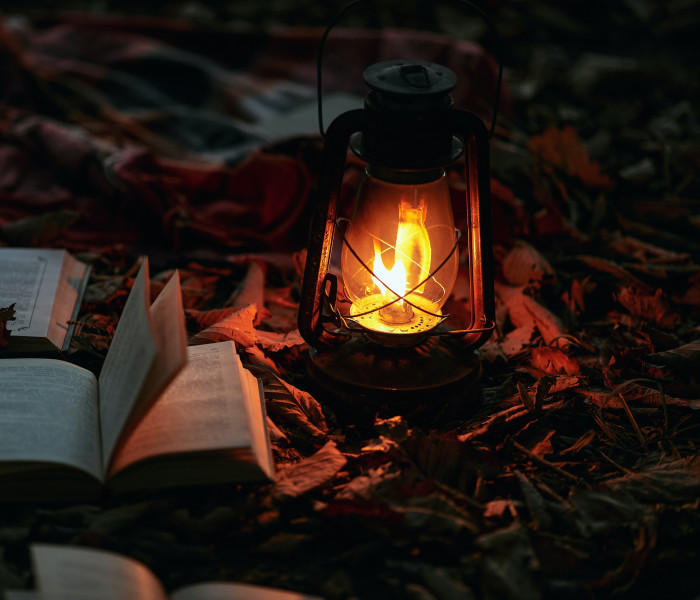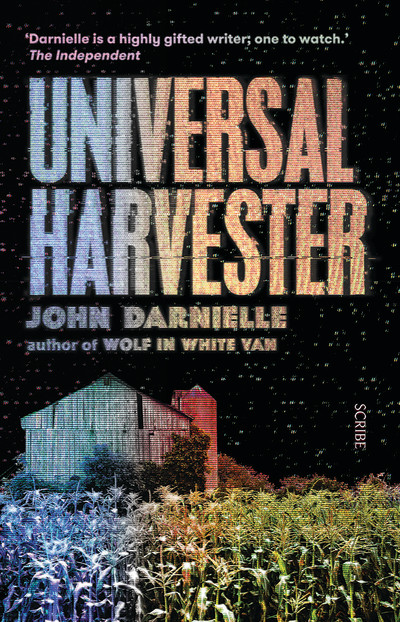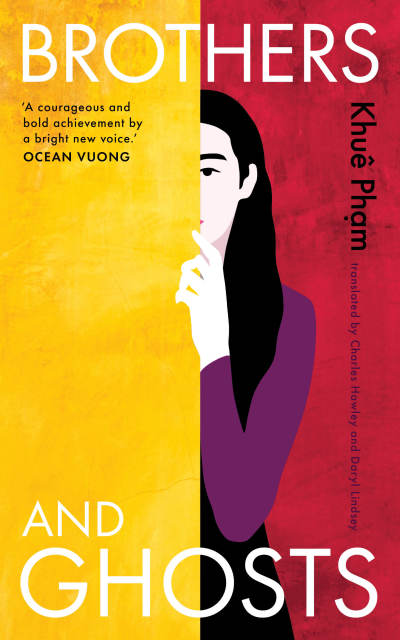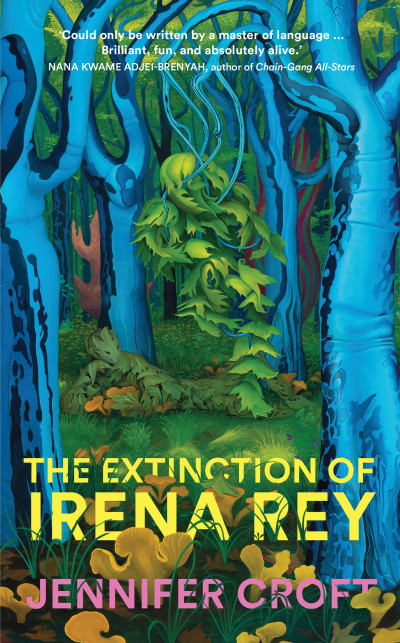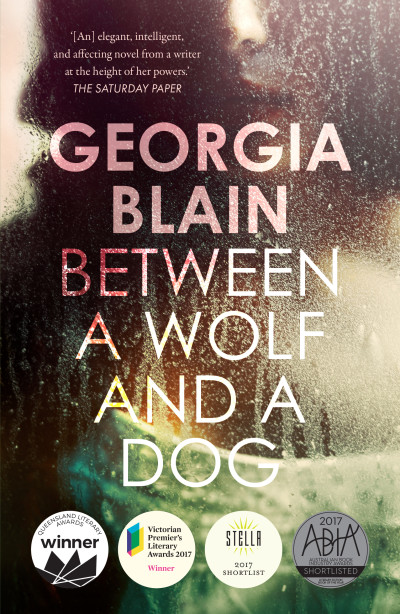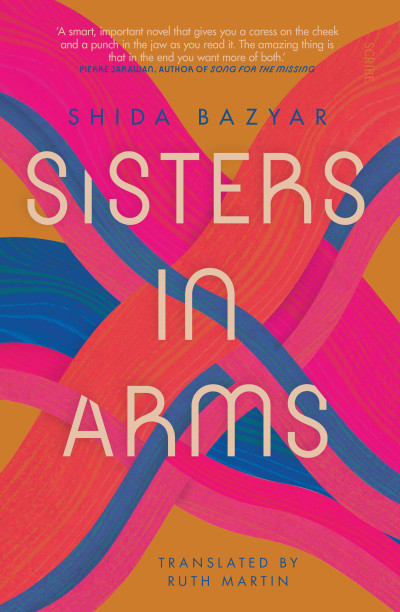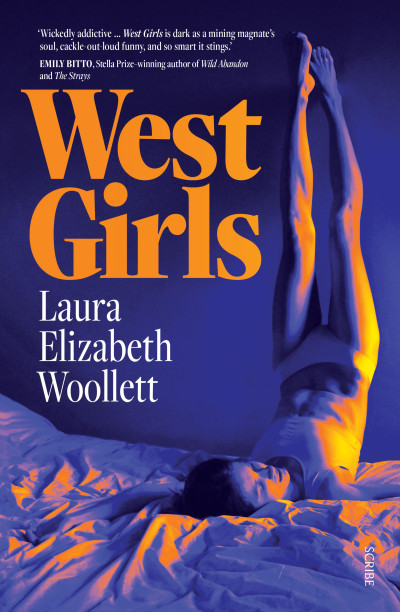'A metafictional masterpiece that turns the true crime genre inside out to devastating effect.’
Mark Sanderson, The Times
‘Masterful … Often tense, lyrically dazzling and iced with a thick layer of irreverent affinity for the fringes of pop culture, the result is top-notch storytelling … Suspenseful, brilliant and chaotically addicting, Devil House triumphs as a page-turning metafictional treatise on the power of narratives cloaked in the trappings of a certifiable true crime classic.’
Zack Ruskin, San Francisco Chronicle
‘If true crime is an addiction, Devil House is a novelist’s cure. It’s a multilayered, fictional story of some horrific murders, their victims and perpetrators, and the man who sets out to tell their tales … [there are] subtle hints Darnielle drops in that [point] to our unhealthy relationship with true crime [but] … there’s no finger pointing, just an expanding perspective that shows that these stories, structured for our satisfaction, leave pain in their wake.’
Carolyn Kellogg, The Boston Globe
‘A visceral and bravura subversion of the true-crime genre, Devil House is an empathetic forensic examination of those left behind after the blood has been mopped, body parts collected, and vultures have gorged their fill. A sense of dread permeates Darnielle’s latest opus, leaving you wondering how much we can ever truly know about the dark secrets communities carry in their collective consciousness.’
Chris Flynn, author of The Mammoth
‘Like his best songs, John Darnielle’s startling and tender new novel radiates out in all directions from the bomb blast of teenagehood. It is a novel about the things we want to believe: about conspiracies and rumours and states of wonder, about monsters of convenience and dreams of escape. It turns to face the horror with disarming kindness, and it implicates us all.’
Miles Allinson, author of In Moonland
‘[A] fascinating hybrid of gothic horror, the true crime format, and something stranger … [Darnielle] is also masterful at sketching out characters with deep sympathy, at capturing ambiance and group dynamics, and never fails to keep his own voice present, a personable tone anchoring unsettling stories. It’s an effective and enjoyable technique for a true crime narrative; what I absolutely love about Devil House is the way Darnielle is playing with that. This is fiction, not true crime, despite its use of the format and its many references to actual cases. Devil House focuses on that distinction; more than that, the novel is feeling its way, quite emotionally, around the ethical quandaries inherent in telling stories about real people and events ... a heady, thoughtful piece of metafiction … Crime-thriller hooks, emotional and philosophical reflection, and one of the most subtle and devastating endings I’ve ever read: Devil House is a novel I know I’ll be returning to.’
Jake Casella Brookins, The Chicago Review of Books
‘He expertly examines the more shocking corners of popular fiction … a riveting tale that is ultimately about the nature of the stories we tell each other … fascinating.’
Doug Johnstone, The Big Issue
‘[R]iveting … Darnielle flays the conventions of true crime to reveal the macabre and ordinary brutality behind sensationalised stories of violence … This masterwork of suspense is as careful with its sharp takes as it is with the bread crumbs it slowly drops on the way to its stunning end. It operates perfectly on many levels, resulting in a must-read for true crime addicts and experimental fiction fans alike.’
Publishers Weekly, starred review
‘This smart, twisty novel about true crime books and the 1980s “Satanic panic” is a fine fit for him and his best so far ... he’s excellent at getting into the uncomfortable details of abusive homes and how fear sparks an urge to escape both physically and creatively ... An impressively meta work that delivers the pleasures of true-crime while skewering it.’
Kirkus, starred review
‘With Devil House, his extraordinarily ambitious third novel, Darnielle proves his versatility yet again. This remarkable shapeshifter of a tale changes form, perspective and even relative truth as it pleases, but never loses its voice … Darnielle steers his dark vessel with dexterity, wit and stunning inventiveness … A triumph from an always exciting storyteller.’
Matthew Jackson, BookPage, starred review
‘In achingly tragic retellings, there is more to both crimes than initially appears to be the case in this labyrinthine quest for the truth. This should draw true-crime devotees as well as crime and general-fiction readers.’
Bridget Thoreson, Booklist
‘Devil House can be read as an indictment of the true crime genre, specifically of the way stories are concocted to explain often-unfathomable tragedies, and of how some stories take precedence over others regardless of their truth ... A feel for time and place is also what Darnielle’s novels are known for.’
Laura Miller, Slate
‘Devil House brilliantly captures the pre-internet spread of news … He evokes a powerful sense of place.’
Chris Power, The Guardian
‘Devil House is not a novel about karma or comeuppance. It is a portrait — sometimes direct, sometimes refracted — of a man realising that his career, combined with his powerful imagination, has taken him far from his morals. In many such narratives, the career wins. Refreshingly, in Devil House, the morals do.’
Lily Meyer, NPR
‘Devil House is a thrillingly experimental novel … Darnielle weaves together an empathetic meditation on the people who live beneath the notice of society — and narrative — until tragedy strikes.’
Shelf Awareness, starred review
‘Split into seven interlocking sections and told over centuries, the novel is an inventive exploration of which stories we prioritise and which we push down, in our popular hunger for narratives of crime, justice, and redemption. Darnielle marshals his many interests toward something approaching social critique … Devil House is at times an investigation, a memoir, a piece of reportage, and, in its most elusive moment, the story of a British king by the name of Gorbonian, written in the sort of faux–old English favoured by writers of low-rent swords and sorcery ... This is fundamentally a novel about whose perspectives we gravitate toward and whose we bury when telling stories about crime and suffering … The novel’s best moments describe extremes. Darnielle expertly handles the violent scenes, presenting the death and dismemberment in a cool, controlled voice, heightening the horror by his refusal to obscure it … It’s a formally audacious [book], a work of fiction-presented-as-truth nested inside this larger fictional project that serves, ultimately, as an exploration of writing fictionalised reality.’
Robert Rubsam, The New Republic
‘[A] brilliant novel … Darnielle skillfully navigates the difficult point of view, pulling the reader ever tighter into the narrative … Darnielle impressively dramatises the writing of a true crime book and the massively deleterious effect the process has on a person genuinely concerned with the ethics of what they’re doing ... Darnielle renders this dilemma — and the bad-taste curiosity that compels people to read and write true crime despite reservations — with such depth and clarity that it feels like he’s somehow culpable too. That’s good fiction writing.’
Bradley Babendir, The A.V. Club
‘[A] gripping true crime novel, a darkly gleeful romp through the tropes of true crime as a genre, and an increasingly painful series of questions about what it costs to make art from someone else’s life and death … a nesting doll of a book … Darnielle is, I think, one of our best writers on class and on the way this country has failed its poor … Darnielle’s able to excavate the ways that terrible pressure can result in violence even from the most good-hearted people, and he’s able to show that even the most mean-hearted people deserve a measure of empathy.’
Leah Schnelbach, tor.com
‘Darnielle’s skillfully refracted presentation … is as worth sticking around for as the tender and tragic stories that reveal themselves within his house of mirrors.’
R. E. Hawley, Gawker
‘In his third (and quite possibly best) novel, Darnielle sets his scopes a little wider … [Devil House] teems with teeth-chattering tension … Come for the gripping true crime tale, stay for the heartbreaking deconstruction of our voyeuristic fascination with real-life murder.’
Thom Dunn, Boing Boing
‘[A] thoughtful (yet still riveting) rumination on authorial responsibility. Inventive and sometimes strange … Devil House is an entertaining page-turner with Darnielle’s signature peculiar-scary style. But it also is a weighty and contemplative look at the art of fiction, the impact of nonfiction, the power of memory, and the ways in which our decisions are the real horrors to fear.’
Sarah Rachel Egelman, Bookreporter
‘[A] breathtaking, metafictional interrogation of the ‘‘truth’’ in true crime … Darnielle is not the first writer to recognise that truth is a slippery commodity or opine about the morality of true-crime novels (and podcasts and documentaries). As with his previous books, it’s Darnielle’s eclectic approach to his subject matter, his unwillingness to conform to a specific style or mode, that makes his work stand out and feel fresh … Devil House will be one of my best novels of the year.’
Ian Mond, Locus
‘[Darnielle's] lyricism and beauty are … on show. His empathy with deeply unhappy teenagers is one of his finest attributes.’
Pierre Sutcliffe, Readings
‘[A]n epic, gripping novel.’
Happy Mag
‘[Devil House] is elevated above the coldness of much crime writing. Darnielle has sympathy for the marginalised and the victimised, the homeless and the disturbed. He is interested in issues of belonging. Where some writers would fall into characterising the relationship of the father and son in Universal Harvester as fractured, Darnielle gives it tenderness. In Devil House, there is a subtle understanding of the nature of outsiders being drawn to one another. And, as with his music, he is able to give the gruesome – and some of the story is gruesome – a comic and warm edge.’
Nick Mattiske, Insights
‘Marbled in juicy violence … suspenseful.’
Jake Kerridge, The Telegraph
‘Devil House [is] a complex, thematically rich and resonant series of tales of crime and murder. But it also becomes a meta-textual consideration of storytelling itself – why we tell ourselves and others stories, how we are able to construct narratives to make sense of the world and to share that view of the world with others, and how these stories can look different from different perspectives. In doing so Devil House becomes both an analysis and takedown of the true crime genre. John Darnielle’s novels have never been what readers might think they are. He uses genre to draw readers in and provide the foundation of an engaging narrative. But his use of genre conventions is usually to subvert them and open the door to a much broader conversation. In Devil House he uses this technique to deliver another fascinating, complex and cleverly constructed novel that asks plenty of questions and delivers no easy answers.’
Robert Goodman, The Newtown Review of Books
‘[Y]ou will be hooked.’
Frank O'Shea, The Canberra Times
'Riveting ... fascinating.'
The Big Issue
‘There are passages throughout of astonishing vividness … left me breathless.’
Dan Chaon, The Week
Praise for Universal Harvester:
‘[A] brilliant second novel … What appears to be a chilling horror tale is also a perfectly rendered story about family and loss … Darnielle is a master at building suspense, and his writing is propulsive and urgent; it’s nearly impossible to stop reading … Darnielle’s novel is beyond worthwhile; it’s a major work by an author who is quickly becoming one of the brightest stars in American fiction.’
Michael Schaub, The Los Angeles Times
Praise for Universal Harvester:
‘Grows in menace as the pages stack up … more sensitive than one would expect from a more traditional tale of dread.’
Joe Hill, New York Times Book Review
Praise for Wolf in White Van:
‘[A]rresting, enigmatic … Darnielle's subject becomes the labyrinthine twists and turns of memory and self-building consciousness … Wolf in White Van is a stunning meditation on the power of escape, and on the cat-and-mouse contest the self plays to deflect its own guilt.’
Ethan Gilsdorf, The New York Times Book Review


